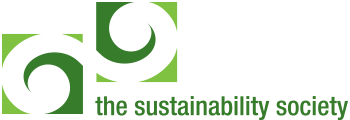Towards 2060: Design the Future Workshop
Presentation by Maggie Lawton, James Samuel, Simon Harvey & Yasenko Krpo (913 kB PDF)
This workshop will follow the approach used in the community engagement programme carried out by Manukau City Council across Manukau City this year. Those workshops were designed to inform, engage and entertain to develop an agreed long-term plan for a sustainable, preferred, possible and plausible future. Much thought went into how to best engage with the communities so that our workshops were a huge step beyond the usual consultative process required under legislation.
The workshops were based on the premise that people need to have access to the same information as their government agencies so that they can make fully informed decisions. They should have information on global drivers of change so that they can draw their own conclusions on some of the challenges and opportunities the future will bring. They should be able to contribute to a community voice which is built into the planning framework which will define their communities and City.
One objective of the project was to add to the body of knowledge around community engagement because ultimately we all need to be part of the change that sustainable development. There is no pretension that we got it all right but we think we made progress and are keen for others to build on that.
This workshop will take participants through many of the approaches we used with community groups. It is an opportunity to see the facilitation techniques, view the information base, experience the games and hold the type of conversations that we enjoyed with people of all ages and walks of life in Manukau. We welcome this opportunity to engage with you.
Turning Words into Action:
Environmental Sustainability and Transportation Network Management
Presentation by Jane Puddephatt, Mayurie Gunatilaka and Garry McLean of MWH (3.19 MB PDF)
Infrastructure owners are increasingly seeking improved environmental outcomes. Transport infrastructure delivery teams are faced with the significant challenge of translating this expectation into operational reality. MWH has combined national expertise in transportation network delivery and environmental management to develop a unique environmental performance improvement framework. The framework delivers actions for improved environmental management outcomes from operational activities.
This workshop will explore the challenges of “turning words into action” and generate ideas on how to make it a reality.
Delivering Sustainable Infrastructure that Supports the Urban Built Environment
Part 1: Presentation by Assoc. Prof. Carol Boyle, University of Auckland (1 MB PDF)
This workshop will begin with a presentation on the paper developed as an outcome of the Blueprints for Sustainability Conference in 2008 and published in the journal Environmental Science & Technology. An international workshop of twenty-eight people met post the conference to identify key issues, including:
- Improving Understanding of Sustainability
- The impact of Global Warming
- Increased Urbanization
- Increasing Age and Risk of Failure in Urban Infrastructure.
- Increase in Consumption in Developing Countries
- Resource Availability: Energy, Water, and Construction Materials.
Dr. Boyle will explain and expand on these discussions.
Part 2: Prof. Laurence Murphy and Dr. Charlotte Šunde, University of Auckland (2.28 MB PDF)
The second part of the workshop will include a presentation by Professor Laurence Murphy and Dr Charlotte Šunde on The University of Auckland’s recently established cross-faculty thematic research initiative, Transforming Auckland: Institutional, Technological and Cultural Innovations for Sustainable Cities.
Auckland already enjoys an international reputation for being one of the most liveable cities in the Pacific Rim region. The challenge now and for the foreseeable future, is to transform Auckland into one of the world’s most sustainable cities. Climate, career and business prospects, and a desirable quality of life have attracted to Auckland the largest concentration of population in the country. But along with increasing population comes increasing pressure on infrastructure, transport, housing, energy resources and governance. These issues reflect in microcosm pressing concerns that impact the entire planet – climate change, poverty, biodiversity loss, peak oil, population growth, and global financial instability.
Transforming Auckland: Institutional, Technological and Cultural Innovations for Sustainable Citiespresents a unique opportunity for the University of Auckland to take a lead role, nationally and locally, in urban sustainability research and delivery. Within an international research context,Transforming Auckland will focus on innovations for sustainable cities, using Auckland as a model or exemplar. Transforming Auckland will contribute to international and national literatures on sustainability, while providing practical interventions and leading-edge research that informs local and central government agencies and supports community-led sustainability initiatives in Auckland. Three broad research themes, set out in the Transforming Auckland Development Plan (2010), include:
- Understanding and managing change for urban environments;
- Transformations in space and place for sustainable futures; and
- Imagining and developing mechanisms/interventions for sustainability.
The Future of Food
Presentation by Dr. Ir. Ron McDowall, University of Auckland (956 kB PDF)
Presentation by Prof. Jacqueline Rowarth, Massey University (1.77 MB PDF)
Presentation by Rob Woodgate, CFO of PGG Wrightson (1.44 MB PDF)
The United Nations Food and Agriculture Organisation (UNFAO) has indicated recently that world food production needs to double by the year 2030. This has significant supply, security and sustainability issues for New Zealand. If we (and the world) are to double food production, it is clear it must be done sustainably. This workshop will canvas the issues of the future of food and sustainability for New Zealand.
